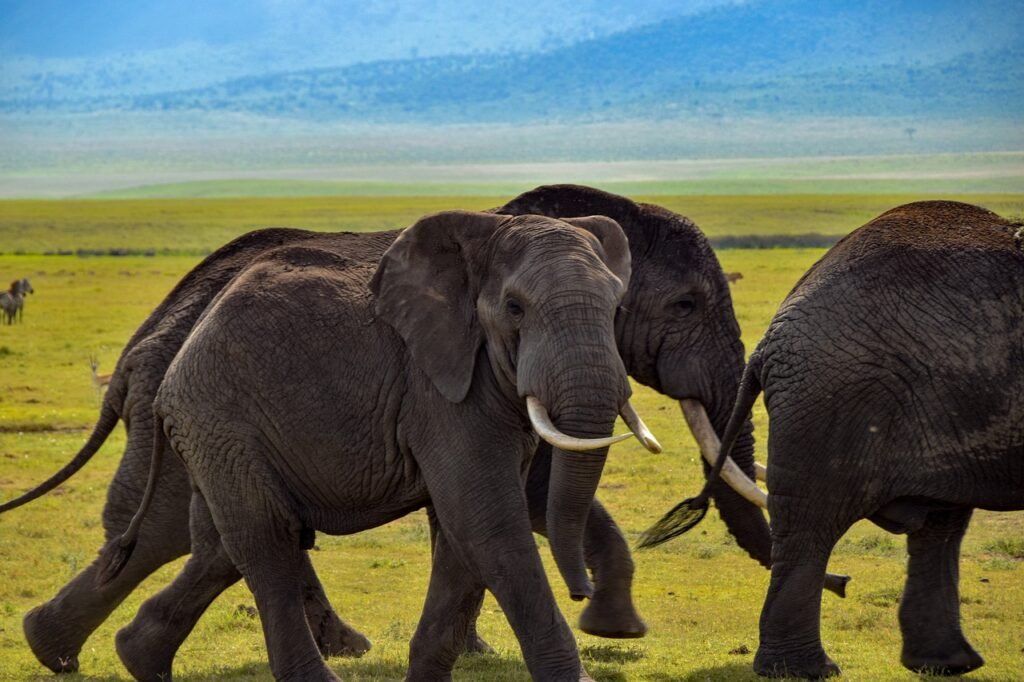Introduction
Elephants have long fascinated humans with their grandeur and intelligence. One enduring belief is that they possess an incredible memory, summed up in the adage “Elephants never forget.” In this comprehensive article, we will explore the reality behind elephant memory and share fascinating anecdotes that reveal the astounding capabilities of these gentle giants.

The Myth and Truth of Elephant Memory
The Origins of the Saying
The phrase “Elephants never forget” has been part of popular culture for centuries. This saying likely originated from observations of elephants’ ability to remember locations, individuals, and even specific events over long periods. Early explorers and researchers were astounded by these behaviors, leading to the creation of this memorable phrase.
Scientific Validation
Modern science has confirmed many of the suspicions of early observers. Research has shown that elephants have one of the most advanced memories in the animal kingdom. Their large brains, particularly the hippocampus, play a crucial role in memory and navigation, allowing them to recall intricate details about their environment and social interactions.
How Elephants Use Their Memory
Navigational Skills
Elephants are known for their incredible navigational skills. They can remember the locations of water sources, food, and safe pathways across vast distances. This ability is particularly crucial in the wild, where resources can be scarce. A study published in the journal “Animal Behaviour” demonstrated that elephants could recall the location of water holes and navigate to them even during severe droughts.
Social Bonds
Elephants live in complex social structures, and their memory is vital for maintaining these relationships. They recognize and remember individuals, including humans, other elephants, and even members of different species. Female elephants, in particular, are known for their matriarchal roles, guiding their herds and remembering social bonds that can last a lifetime.
Long-Term Memory
Elephants’ long-term memory is nothing short of remarkable. Anecdotes abound of elephants remembering human caregivers after decades of separation. In one documented case, two elephants who had been apart for over 20 years were reunited and immediately recognized each other, demonstrating a deep and lasting bond.
The Science Behind Elephant Memory
Brain Structure
Elephants have the largest brains of any land animal, weighing about 5 kilograms. Their cerebral cortex, which handles cognitive functions, is highly developed. This sophisticated brain structure underpins their ability to process and store vast amounts of information.
Comparative Studies
Comparative studies between elephants and other intelligent species, such as dolphins and primates, reveal that elephants’ memory capabilities are among the most advanced. Research has shown that elephants can remember and recognize the voices of up to 100 different individuals, a feat that showcases their exceptional cognitive abilities.
Memory in Problem-Solving
Elephants also use their memory in problem-solving scenarios. In captivity, they have been observed using tools and recalling solutions to problems they encountered long ago. This ability to apply past experiences to new challenges underscores the depth and flexibility of their memory.
Real-Life Examples of Elephant Memory
The Case of Shirley and Jenny
One of the most heartwarming stories of elephant memory involves Shirley and Jenny, two elephants who were reunited after 22 years. When they saw each other again, they immediately displayed signs of recognition and affection, intertwining their trunks and exhibiting behaviors that suggested they remembered their past together.
Elephant Funeral Rituals
Elephants are known for their mourning behaviors, which also highlight their memory. When an elephant dies, members of the herd often engage in what can be described as a form of funeral ritual. They gather around the deceased, touch the body with their trunks, and may even cover it with branches and leaves. These behaviors indicate a deep emotional connection and a capacity for remembering lost companions.
Navigational Feats
In Tanzania’s Tarangire National Park, researchers observed that elephants could remember and navigate to remote water sources during droughts, relying on memories formed many years prior. This ability to recall and act on past experiences is vital for their survival in challenging environments.
The Role of Memory in Elephant Conservation
Human-Elephant Conflict
Understanding elephant memory is crucial for conservation efforts, particularly in areas where human-elephant conflict is prevalent. Elephants can remember locations where they have previously encountered danger, such as poaching hotspots, and avoid these areas. Conservationists can use this knowledge to create safer environments for elephants by minimizing human activities in these regions.
Tracking and Relocation
Conservation programs often involve tracking and relocating elephants to protect them from poaching or to manage population densities. Knowing that elephants can remember their original habitats, conservationists take care to relocate herds to areas with similar environmental features to reduce stress and disorientation.
Educational Programs
Raising awareness about the intelligence and memory of elephants can foster greater empathy and support for conservation initiatives. Educational programs that highlight these aspects can inspire communities to engage in and support efforts to protect these magnificent animals.

The Complexity of Elephant Emotions
Emotional Intelligence
Elephants are not only intelligent but also deeply emotional beings. They experience a wide range of emotions, including joy, grief, and empathy. Their memory plays a significant role in their emotional lives, as they can recall happy and traumatic events, which influences their behavior and social interactions.
Empathy and Altruism
Elephants have been observed exhibiting behaviors that suggest a high degree of empathy and altruism. For instance, they have been seen helping injured members of their herd and even other species in distress. These actions are often driven by memories of past experiences and relationships, showcasing their emotional depth and intelligence.
How Humans Can Learn from Elephants
Social Bonds
Humans can learn a great deal from the strong social bonds that elephants maintain. These relationships are built on trust, cooperation, and mutual support, qualities that are essential for healthy human societies as well.
Resilience and Adaptability
Elephants demonstrate remarkable resilience and adaptability, often overcoming significant challenges by relying on their memory and problem-solving abilities. Humans facing adversity can draw inspiration from these traits, learning to navigate difficulties with patience and persistence.
Conservation Lessons
The conservation of elephants teaches us broader lessons about environmental stewardship and the importance of preserving biodiversity. By protecting elephants, we also protect the ecosystems they inhabit, ensuring a balanced and healthy environment for all species.
The Future of Elephant Research
Technological Advancements
Advances in technology, such as GPS tracking and remote sensing, are providing new insights into elephant behavior and memory. These tools allow researchers to gather data on elephant movements and interactions without disturbing their natural behaviors, leading to a deeper understanding of their cognitive abilities.
Collaborative Efforts
Collaboration between scientists, conservationists, and local communities is essential for the future of elephant research. By working together, these groups can develop effective strategies to protect elephants and their habitats, ensuring that future generations can continue to learn from and admire these incredible animals.
Conclusion
The saying “Elephants never forget” is not just a myth; it reflects a profound truth about the intelligence and memory of these remarkable creatures. From navigating vast landscapes to maintaining complex social bonds, elephants demonstrate cognitive abilities that rival those of any other species. Understanding and appreciating these capabilities is crucial for their conservation and can inspire us to cultivate empathy, resilience, and a deeper connection with the natural world.
